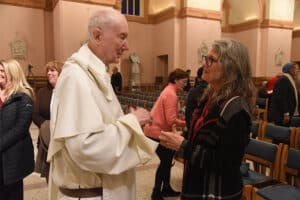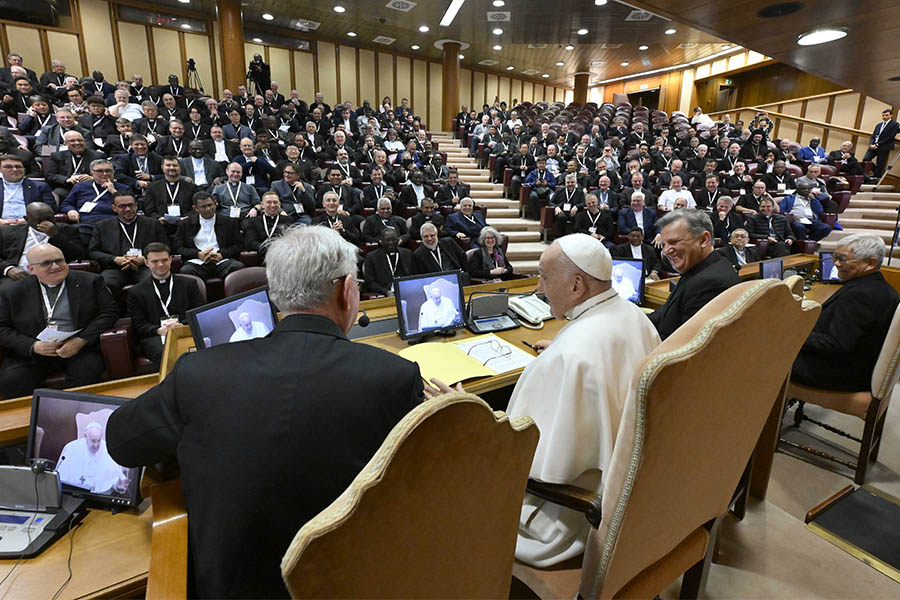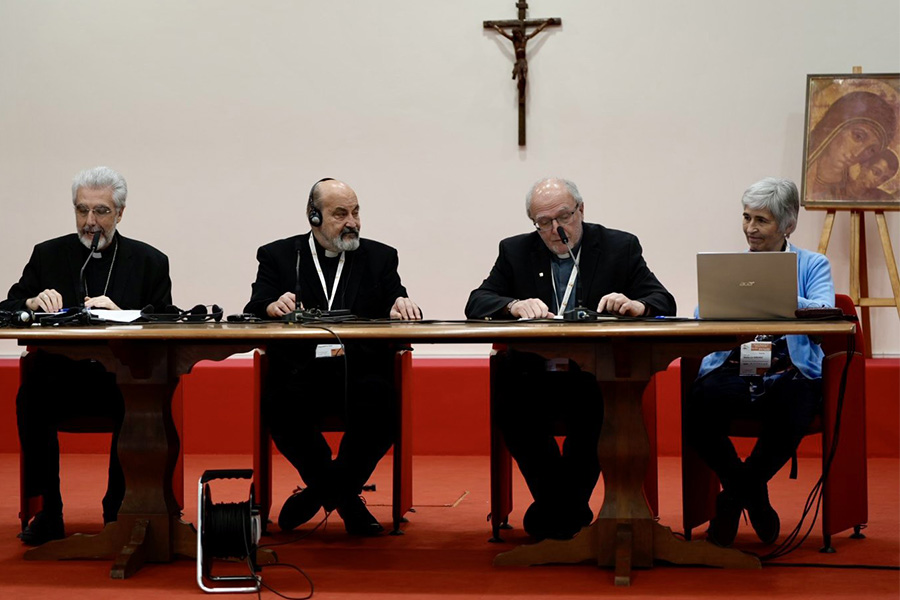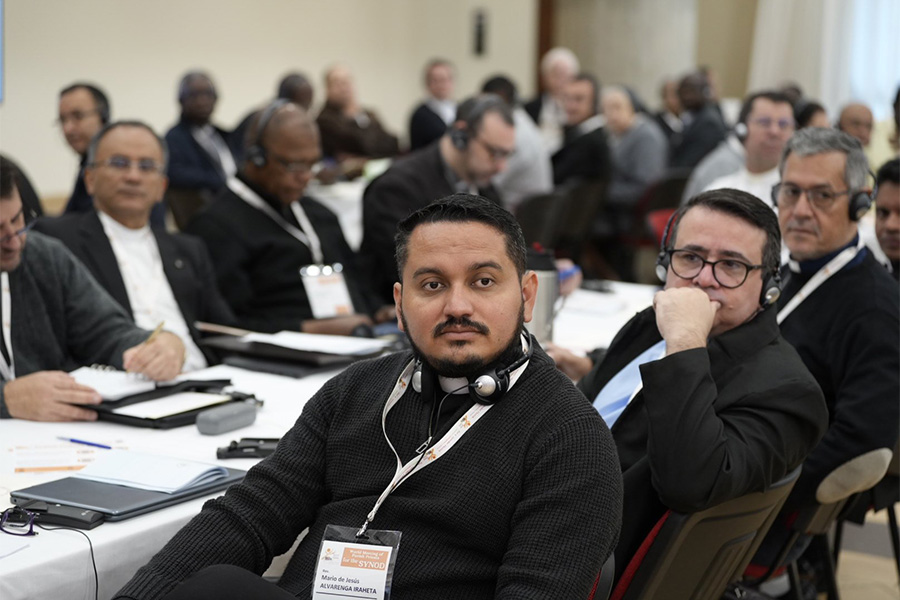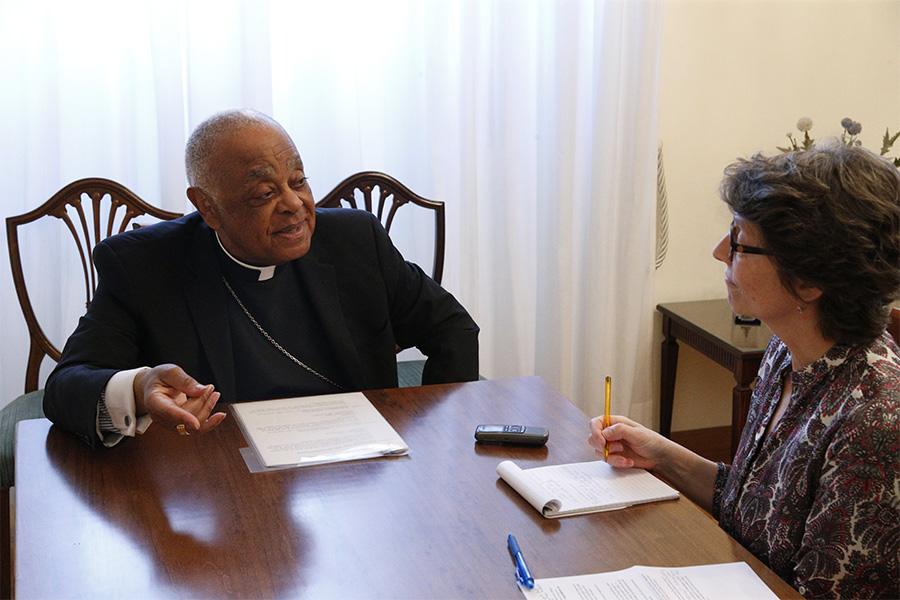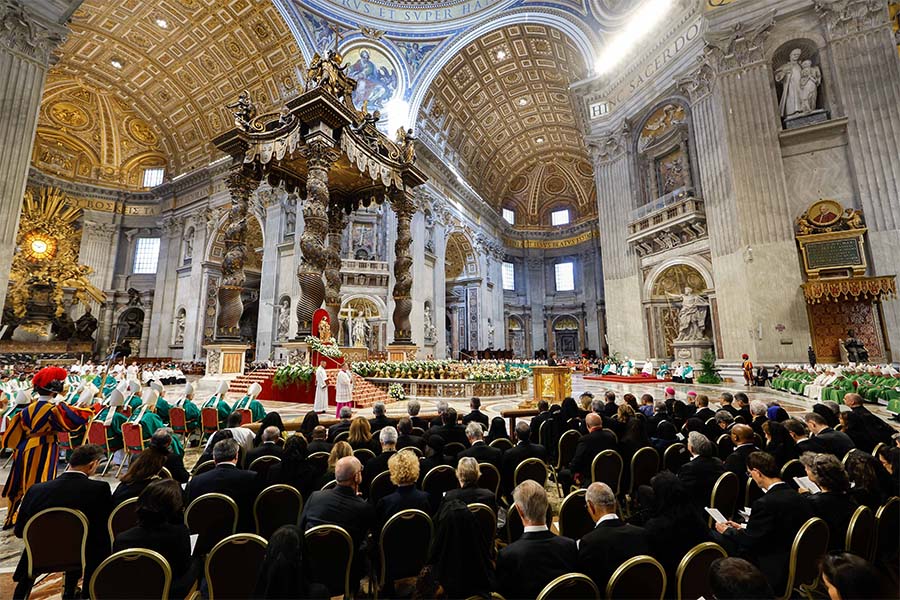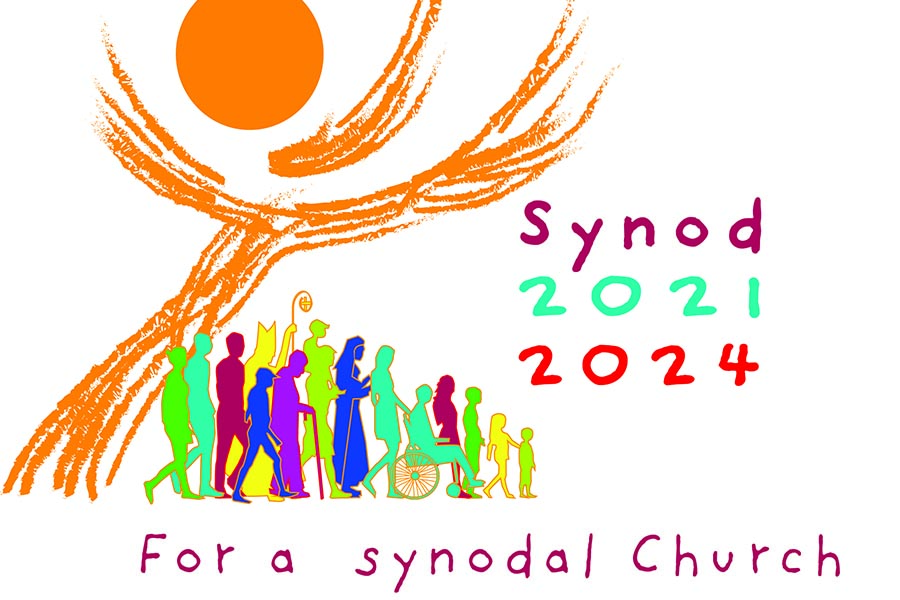INDIANAPOLIS (OSV News) — Some people came to the Synod on Synodality at the Vatican in October “with the hope that it would bring dramatic change to the life of the church,” Dominican Father Timothy Radcliffe said in a talk in Indianapolis Dec. 6. “Other people hoped it would exactly change nothing.”
The priest made the comments in a presentation at SS. Peter and Paul Cathedral. He was on a tour of various U.S. cities to speak about the first assembly of the synod, held Oct. 4-29. The second session of the synod takes place next October.
“According to the media, the press … no big decisions were taken,” said Father Radcliffe, who was appointed by Pope Francis as spiritual adviser of the synod this October. “It was dismissed as a failure, a flop. But Pope Francis always insisted that it’s the Holy Spirit that is the protagonist of change. That’s quite a different understanding of change.”
From this perspective, Father Radcliffe asserted, the synod will change the church “through transformative friendship” that “will leave people completely changed.”
“Any change in the structures of the church for which we hope, for which we long,” he said, “any of these will derive because we’ve become different sorts of people, a different sort of community, a community of the friends of God.”
Such “transformative friendship” at the synod is ultimately rooted, Father Radcliffe said, “in the divine friendship, which is the very life of God, Father, Son and Spirit.”
“Pope Benedict often said our religion, Christianity, is not a religion of the book,” he said. “It is a religion of encounter, transformative encounter.”
To further such encounters, Father Radcliffe said, the synod did not meet like past synods, in an auditorium centered on the pope, cardinals and bishops.
Rather, the participants — ordained, religious and lay Catholics — sat at round tables where they listened to and looked at each other.
“You could see faces being changed, people learning to smile at each other,” Father Radcliffe said. “Christianity is a religion of the face. A lot of what was happening at the synod, at this first stage, was learning to see each other’s faces, learning to befriend them.”
In reflecting on the work of the Holy Spirit in the synod meeting, Father Radcliffe recalled how, when he ministered in Rome as the general of the Order of Preachers, he watched a nest of hawks outside his office and the mother and father hawks urging their nestlings to fly out of the nest.
“Fly or die,” Father Radcliffe said. “That’s what the Holy Spirit does, it propels us out of where we are comfortable. A similar thing happened at the synod, and its consequences are potentially enormous.”
Part of going beyond “comfort zones” in the synod, Father Radcliffe said, was its participants seeing value in the priorities and experiences of fellow participants from different countries and cultures.
This, he said, is especially important in contemporary society marked by a growing “militant nationalism all breathing to war” that “often goes with fundamentalist forms of religion.”
“But in the synod, we began to glimpse how we are called to be more than citizens of our country,” Father Radcliffe said. “We are baptized to be citizens of the kingdom of God. Vastly more significant than any identity we may have as citizens of any country is that we are citizens of the kingdom (in) which, as St. Paul said, there is neither slave nor free, Greek nor Jew, male nor female.”
While the Holy Spirit takes believers beyond the comfort zones of their countries and cultures, Father Radcliffe said that it also binds people of great diversity into the truth.
“The Spirit leads us into all truth,” he said. “On the night before he died, Jesus promised the Spirit, the Spirit of truth. Human beings live by the truth. We need it to thrive. Birds need air. Fish need water. Human beings need truth. Without it, we perish. And we live in a society in which … instinct for the truth is being undermined.
“Detachment for the truth is subversive of the human community, as we can see all over the world. It leads to polarization, violent language and conflict, here in the United States, at home in Britain and everywhere in the world. This detachment from reality is fundamentally dangerous.”
Looking forward to the concluding meeting of the Synod on Synodality next October, Father Radcliffe said that it needs to go beyond the “conversations in the Spirit” that marked the first meeting.
“To go further, we need theologians to help our dialogue with each other, our dialogue with the Gospel, our dialogue with the tradition,” he noted.
In particular, Father Radcliffe said, the synod needs the kind of theology that he said Pope Francis promoted in an apostolic letter he issued “motu proprio,” on his own initiative, Nov. 1. In it the pontiff called for a major push toward developing a “fundamentally contextual theology, capable of reading and interpreting the Gospel in the conditions in which men and women live each day.”
“We must move toward a theology of dialogue, a theology of conversation, a theology in which we engage with others with different views with whom we disagree,” Father Radcliffe said. “That’s what we need in the synod. That’s what we need in the church. And that’s what we need for every one of you.
“We need to dialogue with people who are different, to release us from our little bubbles so that we may journey toward the truth together. We must be unafraid of argument. I think we only took the initial steps towards that in this first session of the synod.”
A challenge in moving the synod and church as a whole toward this kind of dialogue and change, Father Radcliffe said, is “to bring on board the priests.”
“If we do not do so, the synodal path will get us nowhere,” he said. “It was remarked that the priests around the world — I don’t think in this archdiocese — but around the world the priests have been those most resistant to the synodal path.
“I think that if we are to move forward, we have to find ways of cherishing the priesthood, of accepting it and seeing its beauty in a good way, of seeing how people are ordained to be ordered to the people of God.”
Looking more broadly, Father Radcliffe also saw a challenge in the way that competition marks so much of contemporary culture.
“How do we become a non-rivalrous people?” he wondered. “It’s the hardest lesson of all.”
This aspect of society has an effect on the church, Father Radcliffe said.
“I think for us the great art is how we learn to live without competition with each other,” he said. “Because essentially, more authority, more voice for the laity does not mean less authority for the priests. More authority for priests does not mean less authority for bishops.
“If we learn to live together well in the Holy Spirit, poured upon us by the Father, then we will become less and less competitive and mutually empowering.”
In a question-and-answer period after his talk, Father Radcliffe said that although the participants in the synod came to the meeting with vastly differing hopes and expectations, they were united in the Eucharist.
“Which is always beyond what all of us can imagine,” he said. “It’s beyond all that we could dream. So, for me, that’s why every synod is profoundly and deeply Eucharistic all the way through.”
A video of Father Timothy Radcliffecan be viewed at lnkiy.in/Radcliffe.
Read More Synodality
Copyright © 2023 OSV News
